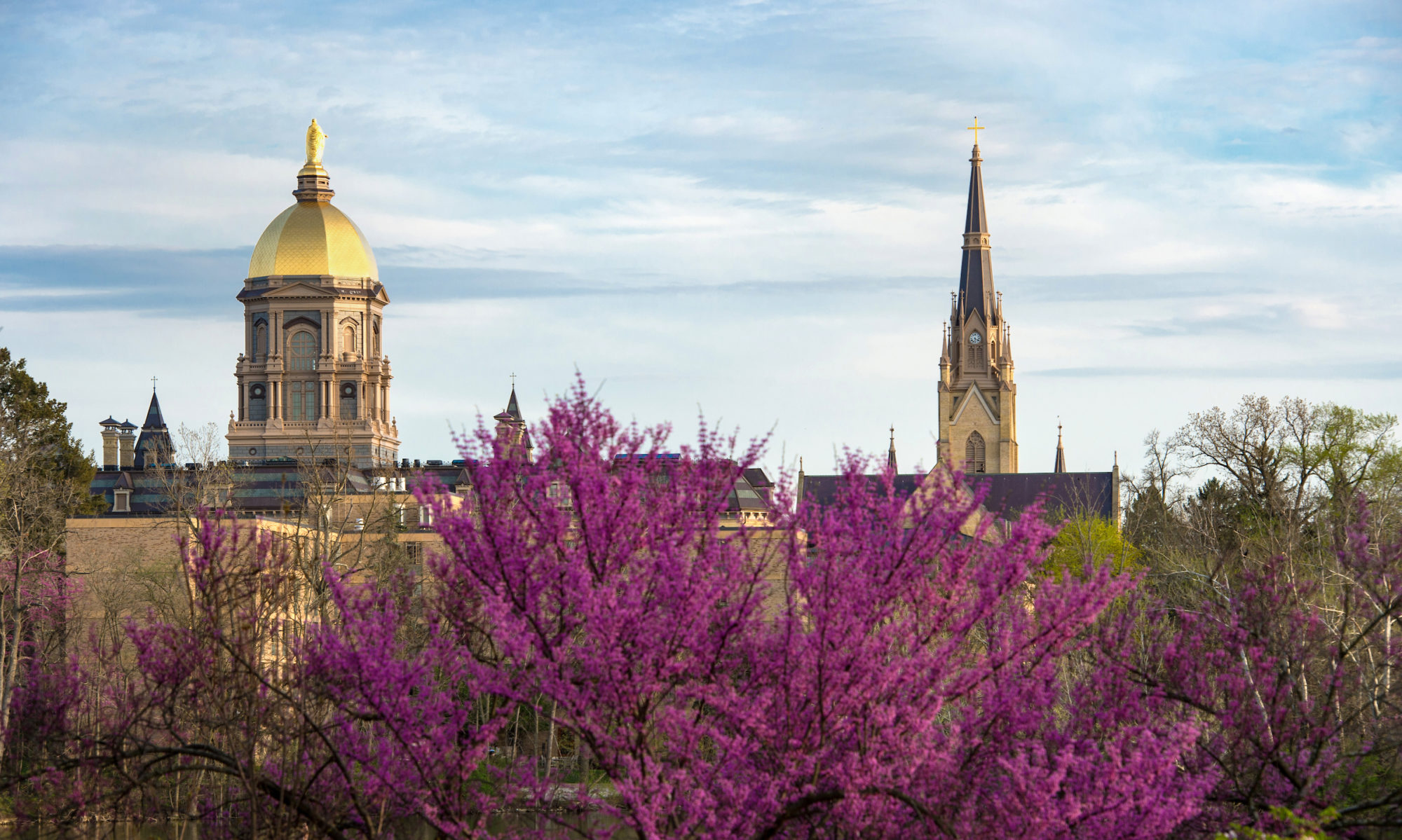 Imagine you are charged with the health and safety of more than 100 students studying abroad, a formidable job under normal circumstances. Then imagine that a rapidly spreading mystery virus with no vaccine or cure that you thought was half a world away is suddenly on your doorstep.
Imagine you are charged with the health and safety of more than 100 students studying abroad, a formidable job under normal circumstances. Then imagine that a rapidly spreading mystery virus with no vaccine or cure that you thought was half a world away is suddenly on your doorstep.
Silvia Dall’Olio, executive director of Notre Dame’s Rome Global Gateway, says she felt like she was living in two worlds as the coronavirus rapidly spread through Italy in February. She watched a disaster unfold in the north of the country while life in Rome continued unfazed — and students prepared to attend big parties for Carnival, the festival just before Lent begins.
Dall’Olio is getting high marks from the University for how she reacted, keeping a cool head and taking all the right measures as the world’s second major COVID-19 hotspot was exploding around her. She credits her team in Rome, the University’s second-largest program abroad, and counterparts at Notre Dame International and the University’s Emergency Operations Center for the students’ ultimate safety.
Dall’Olio found Notre Dame through her now husband, Michael Driessen, a political science professor at John Cabot University in Rome. They met as students in Bologna, her hometown, through the community of L’Arche, a place where adults with and without intellectual disabilities share their lives together. They decided to get married, and three weeks after the wedding, she landed on the Notre Dame campus, where Driessen was earning his doctorate.
An assistant professional specialist of Romance languages, Dall’Olio earned a master’s degree and taught while at Notre Dame. She holds a doctoral degree in linguistics and second language pedagogy, and has worked internationally as a translator and language tutor, including at the Italian Embassy in Qatar’s capital, Doha. Dall’Olio has led the gateway for three years, but has worked there in various capacities since it opened in fall 2014.
She is particularly proud of the gateway’s formal designation last year by the Italian Education Ministry as an Italian research institution, and the Rome International Scholars Program, which combines traditional learning with research and internships.
